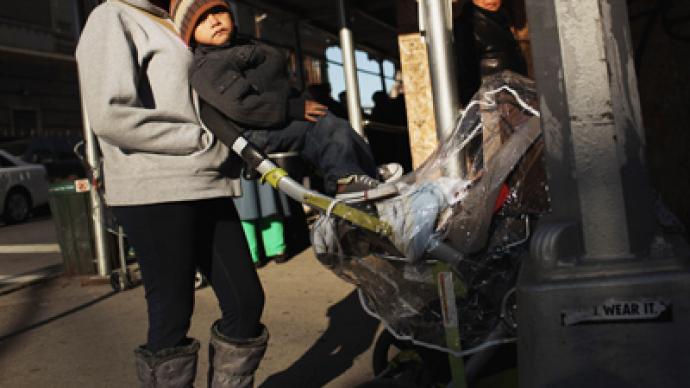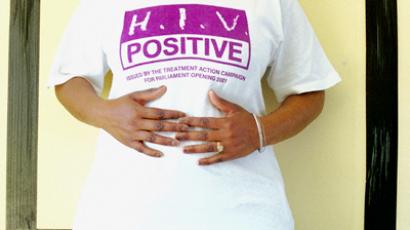One-fifth of US children are living in poverty

A just released analysis of recent census statistics reveal that more than one-in-five children in the United States lives in poverty.
Demographers have mulled through US Census Bureau figures from 2011 to discover that economic conditions in the US may be even worse than what experts had previously suggested. In addition to the continuously stagnant unemployment level, poverty among Americans remains at record levels."The take-away is that the number of people living in poverty continues to be appallingly high," Julie Zaebst, policy manager with the Greater Philadelphia Coalition Against Hunger, tells the Philly Inquirer. "This despite the economy being in recovery."And as the poor continue to suffer, America’s elite are in better standing than ever. While incomes for the country’s bottom 40 percent of wage-earners remained relatively stable last year when compared with statistics from one year earlier, the top one percent of Americans saw their wages increase by around 6 percent, further widening the gap between the haves and have-nots. According to the latest figures, the youth of the US are hit hardest. While adults make up a significant proportion of the population living below the poverty line, 21.9 percent of all children in the country — more than one in five — are poor. By comparison, only 8.7 percent of adults over the age of 65 live in similar standing.The latest report, released this week, reveals that in addition to more and more young Americans forced to live below the poverty line, the median household income in the US has dipped again, this time by 1.5 percent when compared to its 2010 level, showing the second consecutive annual drop.“There is no doubt that, relative to the long-term history of poverty when we began to measure it, these are bad numbers,” Gary Burtless of the Brookings Institution tells The Kansas City Star said of the poverty rate over recent years. “People could still say they go hungry for a few days a month, or for a few days a week. I don’t dispute that.”Just days earlier, the US Agriculture Department confirmed that around 1.3 million more Americans were struggling to overcome hunger in 2011 than 2010. The White House responded broadly to the latest figures this week by saying through a blog post, "While we have made progress digging our way out of the worst economic crisis since the Great Depression, too many families are still struggling and Congress must act on the policies President Obama has put forward to strengthen the middle class and those trying to get into it.”On Thursday, US Federal Reserve Chairman Ben Bernanke confirmed that the central bank would be beginning a third round of quantitative easing with no end in sight. The Fed released a statement saying they “will continue its purchases of agency mortgage-backed securities, undertake additional asset purchases and employ its other policy tools as appropriate until such improvement is achieved in a context of price stability” in a last-ditch effort to revive the US economy.














